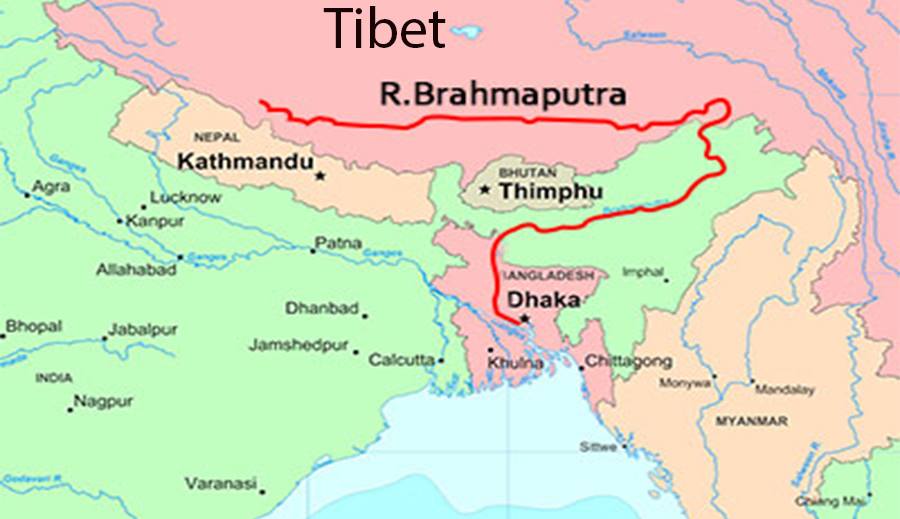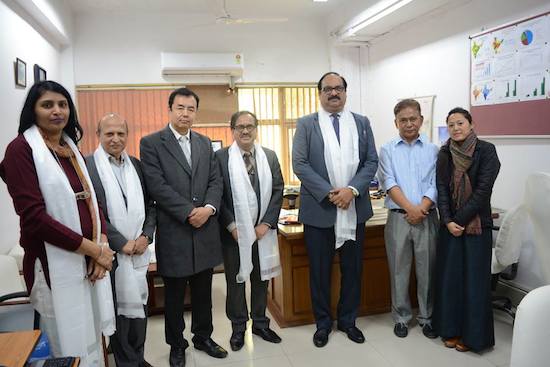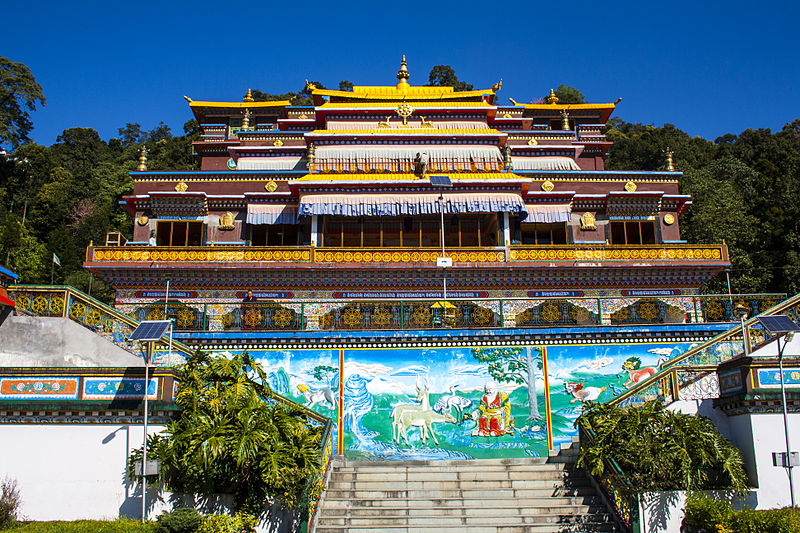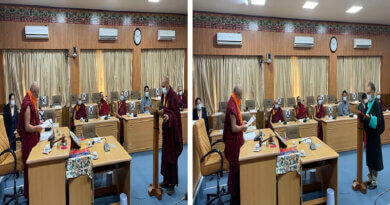“Tibet’s Independence is India’s Best Security”: Tibetan Activists Condemn Wang Yi’s India Visit
By Tenzin Chokyi
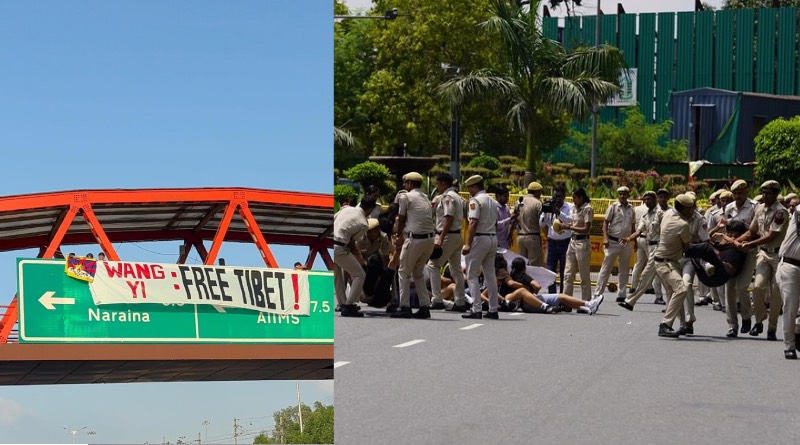
DHARAMSALA, 19 Aug: As India and China look forward to strengthening the positive momentum in their bilateral ties following the post-Galwan meeting between Prime Minister Narendra Modi and President Xi Jinping in Kazan, the core border issue the “ Tibet factor” remains conspicuously unspoken, rendering the foundation for their relationship fragile and delicately balanced.
Tibetan activists and advocacy groups strongly condemned Wang Yi’s visit, greeting his motorcade with giant protest banner above his motorcade as he arrived in Delhi, as well as staging a protests outside the Chinese Embassy, demanding an end to China’s crackdown in occupied Tibet and urging the Indian government to recognise that any lasting resolution must reflect Tibet’s historical status and amplify the voices of the Tibetan people.
“Wang Yi’s visit to India for border and trade talks is an empty gesture specially while Tibet remains occupied. We have seen firsthand that China’s promises cannot be trusted, From betrayals of 1962 and the escalation at Dokhlam and Galwan, to ongoing, insidious “Five-finger strategy” aimed at absorbing regions along the Himalayas,” said Tenzin Passang, National Director at Students for a Free Tibet India, in a release.
“Tibet’s independence is not only a moral issue; it is also India’s best security,” she added.
According to the Times of India, India’s External minister S. Jaishankar met Chinese Foreign Minister Wang Yi on Tuesday. During his two-day official visit to India, both parties stressed on mutual respect, mutual interest and building a multipolar world through cooperation in their opening remarks.
Wang Yi’s visit marks the first by a Chinese leader to India since the last meeting between Prime Minister Modi and President Xi Jinping in Kazan. During his two-day visit (18-19), he will hold the 24th round of Special Representatives talks with India’s National Security Adviser Ajit Doval, focusing on the lonstanding border dispute.
The talks center on a boundary that runs along what was historically the India–Tibet frontier, stretching over 3,488 km. This border has become a focal point of tension between the two Asian powers since Tibet, once serving as a buffer state, came under Chinese colonial control.
Jaishankar stressed that resolution of the border issue is essential for any meaningful forward movement in bilateral relations. He reiterated that “differences must not become disputes,” and underscored the importance of “mutual respect, mutual sensitivity, and mutual interest” as guiding principles.
However, the long standing principle of mutual respect and mutual peace between the two countries, first articulated in the 1954 Panchsheel Agreement has meant greater sacrifice on the part of the Tibetan freedom movement, limiting India’s ability to openly oppose China’s colonial occupation of Tibet. Furthermore, this dynamic has been linked to increased border instability for India, a situation that has persisted since the 1962 border conflict.

